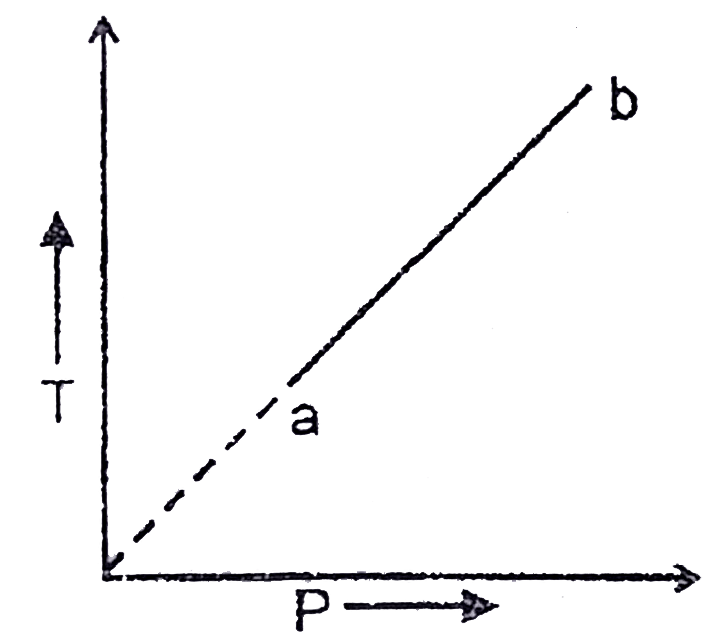In changing the state of a gas adiabatically from an equilibrium state A to another equilibrium state B, an amount of work equal to 22.3 J is done on the system. If the gas is taken from state A to B via a process in which the net heat absorbed by the system is 9.35 cal, how much is the net work done by the system in the latter case ?
(Take 1 cal=4.19 J)
In adiabatic process,
ΔU=work done on the system=22.3 J….(i)
In second case, when the state A is taken to state B, then heat absorbed by the system, then using first law of thermodynamics,
ΔQ=ΔU+ΔW⇒ΔW=ΔQ−ΔU
Topper's Solved these Questions
Similar Questions
In changing the state of a gas adiabatically from an equilibrium state A to another equilibrium state B, an amount of work equal to 22.3J is done on the system. If the gas is taken from State A to B via a process in which the net heat absorbed by the system is 9.35cal., How much is the net work done by the system in the later case? (Take 1cal.=4.9J)
View SolutionIn changing the state of a gas adiabatically from an equilibrium state A to another equilibrium state B, an amount of work equal to 22.3J is done on the system. If the gas is taken from State A to B via a process in which the net heat absorbed by the system is 9.35cal., How much is the net work done by the system in the later case? (Take 1cal.=4.9J)
View Solution
Knowledge Check
In changing the state of a gas adiabatically from an equilibrium state A to another equilibrium state B an amount of work equal to 22.3 J is done on the system.If the gas is taken from state A to B via a process in which the net heat absorbed by the system is 9.35 cal then the net work done by the system in latter case is
(Take 1 case =4.2 J)A15 JB16 JC17 JD18 JIn changing the state of a gas adiabatically from an equilibrium state A to another equilibrium state B an amount of work equal to 22.3 J is done on the system.If the gas is taken from state A to B via a process in which the net heat absorbed by the system is 9.35 cal then the net work done by the system in latter case is
(Take 1 case =4.2 J)A15 JB16 JC17 JD18 JWhen the state of a gas adiabatically changed from an equilibrium state A to another equilibrium state B, an amount of work 35 J is done on the system. If the gas is taken from state A to B via process in which the net heat absorbed by the system is 12 cal, then net work done by the system in the latter case is (1 cal = 4.19 J)
A13.2 JB15.4 JC12.6 JD16.8 J
When the state of a gas adiabatically changed from an equilibrium state A to another equilibrium state B an amount of work done on the stystem is 35 J. If the gas is taken from state A to B via process in which the net heat absorbed by the system is 12 cal, then the net work done by the system is (1 cal = 4.19 J)
View SolutionAn ideal gas change from state a to state b as shown in Fig. what is the work done by the gas in the process?

View SolutionIn a process, 701J of heat is absorbed by a system and 394J of work is done by the system. What is the change in internal energy for the process?
View SolutionWhen the state of a gas adiabatically changed from an equilibrium state A to another equilibrium state B an amount of work done on the stystem is 35 J. If the gas is taken from state A to B via process in which the net heat absorbed by the system is 12 cal, then the net work done by the system is (1 cal = 4.19 J)
View SolutionAn ideal gas change from state a to state b as shown in Fig. what is the work done by the gas in the process?

View Solution
